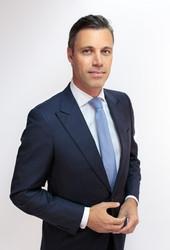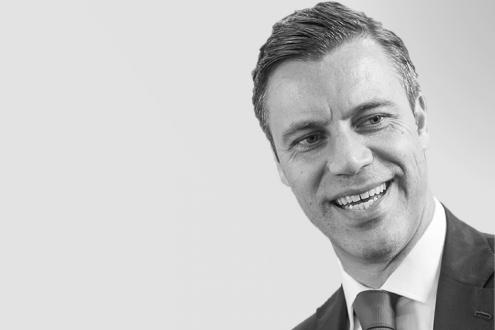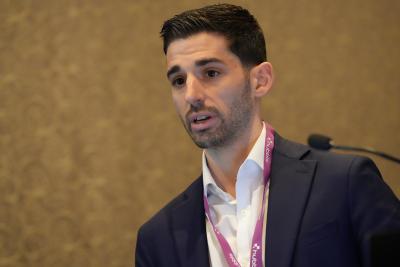Wealth Management Leader Harmen Overdijk on Carefully Building Exposure to the World of Digital Assets

Nov 29, 2021
Harmen Overdijk is the founding partner of The Capital Company, which after a merger with a US-based multi-family office in August this is now named Leo Wealth. The deal was an ideal fit because The Capital Company, as an independent asset management firm, had focused on offering global and Asia-specific investment advisory and related services to wealthy international investors, with robust connectivity and expertise linking Asia and the US. And the US merger brings additional AUM, additional focus on the US, and a strong inclination towards alternative assets, where the US firm has a particular expertise and track record. After the recent merger, the new firm has AUM of slightly over USD4 billion, and Harmen believes that the enlarged group will be even better at providing a broad range of value-added services in terms of helping clients and families build and protect their asset portfolios and therefore a stronger competitive position competing against the private banks and other providers. In tune with the expansion of coverage of the world of alternative assets, Harmen joined our panel of experts on September 23 as they analysed the evolution of the digital assets market and discussed how market players should approach such cryptocurrency and also digital token assets with their clients.
Harmen first explained to delegates that the firm only manages discretionary portfolios for individual clients, and that aligning portfolios more towards alternative assets was a core mission for the enlarged firm. He reported that their US-based clients are much more familiar with alternatives and that the newly merged firm is expanding its expertise in digital assets. “We see lots of interesting developments taking place in the decade ahead, but not only in cryptocurrencies, as there will be much more interest in digital coins as well,” he said. “However, we are not believers that this will be all about cryptos – we believe that other tokens such as Decentralised Finance, or DeFi tokens, and security tokens are potentially going to form a much bigger part of the digital asset space in the future.”
From medium of exchange to asset
Crypto coins, he noted, were originally created as a potential means of exchange but had evolved into a viable and interesting investment class in their own right.
“We began investing in cryptos for our clients last year,” he said. “We can say it is rather similar to investing in gold or silver, which were historically also mediums of exchange, currencies effectively. We offer cryptos to clients in discretionary portfolios as they had since the pandemic hit been asking for a much higher percentage of gold in their portfolios. We agreed but we said that they should look a little bit broader than that and see where the global flows are going; that's clearly into the crypto space. We do not expect clients to take large exposures; this is purely for diversification, as we see it.”
Zeroing in on Bitcoin and Ethereum
Harmen explained that they prefer not to look beyond Bitcoin and Ethereum and are not believers in the proliferation of numerous cryptocurrencies. “We are a licensed firm here in Hong Kong and in the US, and a central concern, of course, is investing safely for clients, so we started investing through recently ETFs, or securitised versions of Ethereum, and Bitcoin. In the US, for example, Fidelity offers index products for qualified investors and we're now looking whether we can offer that in a regulated way in Hong Kong, through the only regulated digital assets exchange in Hong Kong at the moment, which is OSL. In short, we invest actively with modest and careful allocations to Bitcoin and Ethereum in the thematic portions of our portfolios.”
He explained that clients have the choice if they do not want such exposures, noting that while there are some who decline, most will take a very small allocation, seldom going beyond 1% of their total portfolios. He reiterated that this is for diversification; it is not because they believe investors should load up on cryptocurrencies.
Building modest exposures
“We see this as a segment of the asset markets to which investors should have some exposure,” he said. “And we recognise how volatile the markets are. However, we are not traders; we are ‘buy and hold’ in our approach, seizing the opportunities to also rebalance if Bitcoin or Ethereum fall very sharply. That is a good time to also potentially convince more clients that they should add it to their portfolio.”
He returned to the regulatory environment, noting that some of the private banks see this as a major hindrance to their participation. And he observed that unlike the world of mainstream financial assets, there are significant differences between the approaches of different jurisdictions, for example, Singapore and Hong Kong.
An evolving regulatory environment
“And the US is already quite developed, but still is taking a somewhat different approach from the Asian and the European markets,” he commented. “And then you see markets such as China, Thailand and India where they had effectively outlawed crypto to a large extent. Naturally, we comply with both the Hong Kong and US regulatory situations, as we operate out of both jurisdictions. The regulatory environment will clearly evolve significantly in coming years, and as the regulators catch up, that will certainly impact how these markets develop.”
DeFi in focus
Harmen also elaborated on DeFi, which he described as the next level up from cryptocurrency. “As I mentioned, Bitcoin was originally designed as a potential payment currency; the idea was to use is to help create a much more efficient payment system because even today transferring money from one country to the other and across fiat currencies is still relatively expensive. And credit card companies are still taking quite a big chunk out as transaction fees. Moreover, unlike fiat currencies, there is no government to simply issue as much additional currency as they want. So, the whole concept of cryptos as a medium of exchange is evolving and DeFi is sort of the next step from what the Ethereum network, the smart contract network was already doing. It allows you to use the blockchain technology in different ways and for different applications that make, for example, accounting easier or that simplify AML or compliance or tax filing.”
A tokenised world of investing
Security tokens, he observed, are somewhat different again. They could, he said, for example convert plan vanilla shares traded on mainstream stock exchanges into a digital format. “Why would that be useful?” he pondered. “Well, let’s say you want to sell Microsoft, which is traded in the US in dollars and buy Nintendo, which trades in Tokyo, well, you have to sell and settle in the US in dollars, buy Yen and then buy Nintendo in Tokyo. However, with security tokens, you could effectively trade them directly against each other without numerous intermediaries and steps. It would potentially make the markets a lot more efficient.”
Harmonising the digital and the human
Harmen also commented that as the world moves towards digital assets and digital delivery of advice and execution, that does not, however, mean that the world of wealth management will dispense with the human elements and expertise. He compared wealth and asset management to the medical sector, where there are more and more digital tools for analysis and diagnosis, but where the doctor and front-line medical staff remain incredibly important.
“Maybe you speak to the doctor through a digital engagement, as digital healthcare evolves rapidly, but you still connect with that person for trusted advice,” he said. “That is sort of a blueprint for what is happening in the wealth management industry.”
The hybrid model
He expanded on this comment, noting that while his firm is working hard digitising many elements of the delivery and conversations, rapidly and seamlessly delivering their views and ideas on the markets, when clients want to discuss their long-term wealth, estate and legacy planning, they still want to be able to speak to people. “That is the part a lot of the pure digital wealth managers are struggling to replicate,” he observed. “In short, the future will see a combination of digitised and human expertise and delivery.”

Chief Investment Officer at Leo Wealth

More from Harmen Overdijk, Leo Wealth
Leo Wealth’s CIO on Evolving the Ideologies Around Curating Investment Offerings for Private Clients
Latest Articles






